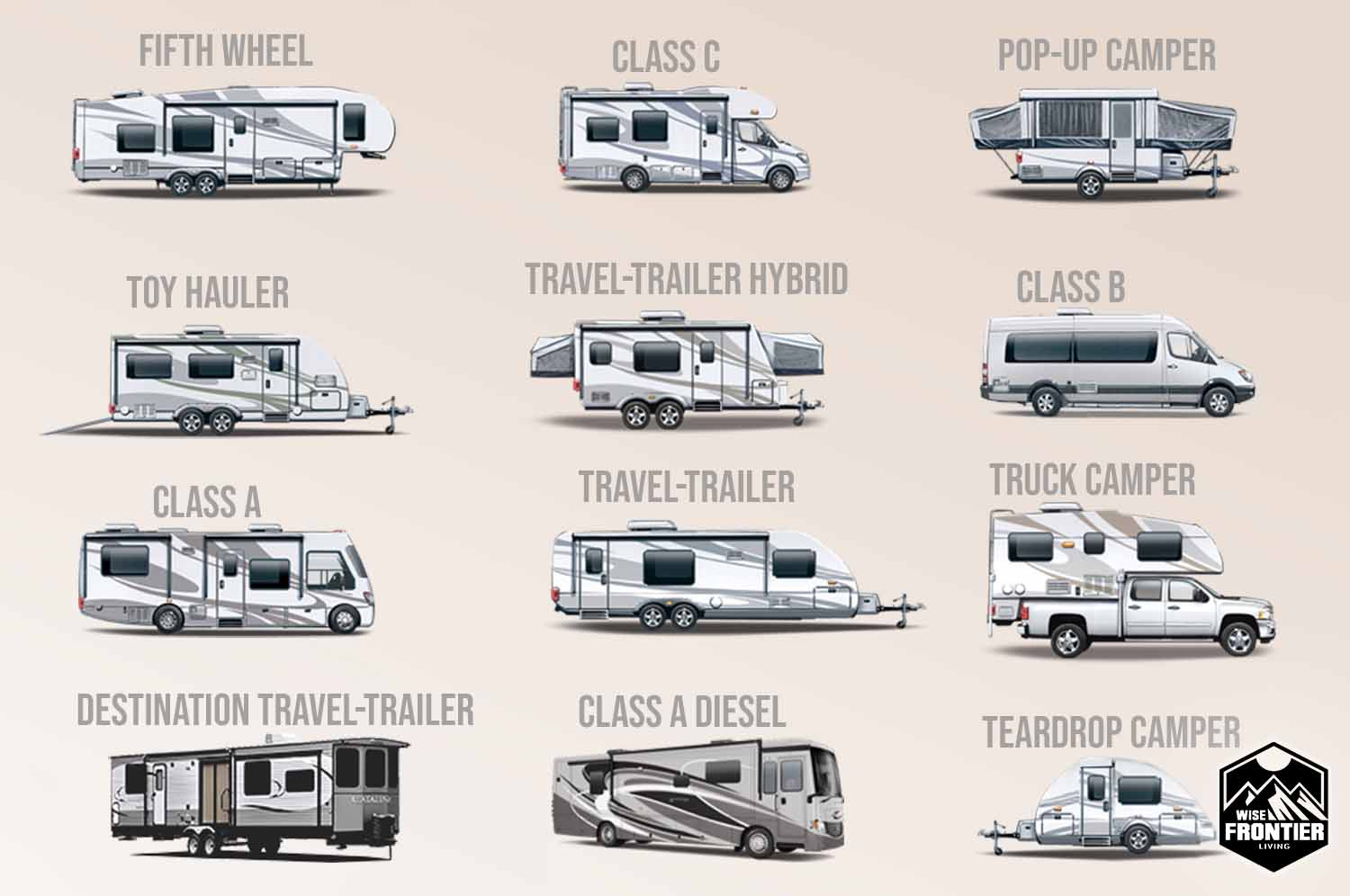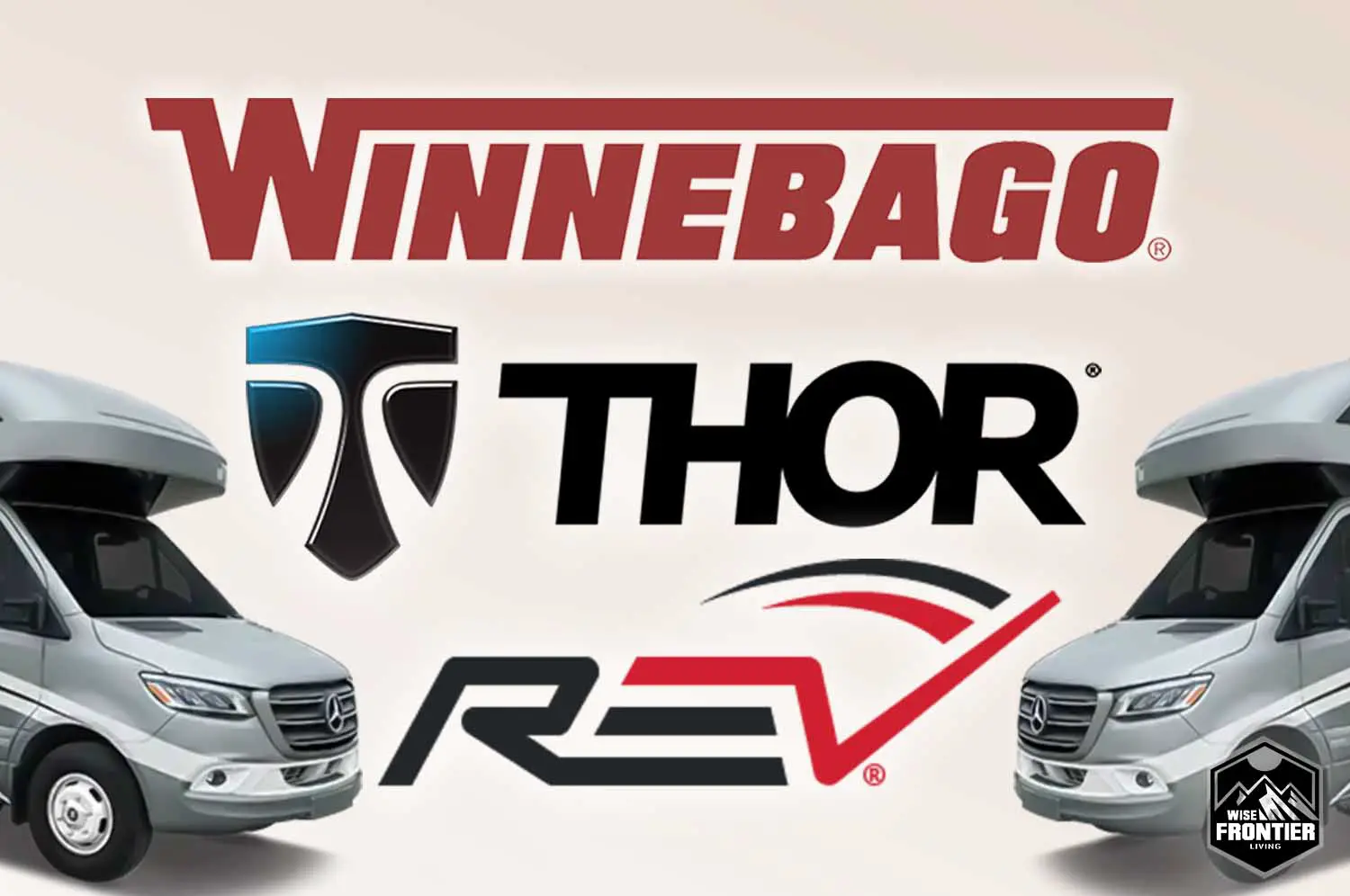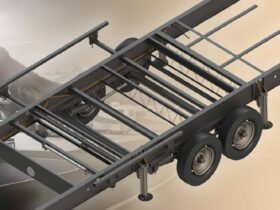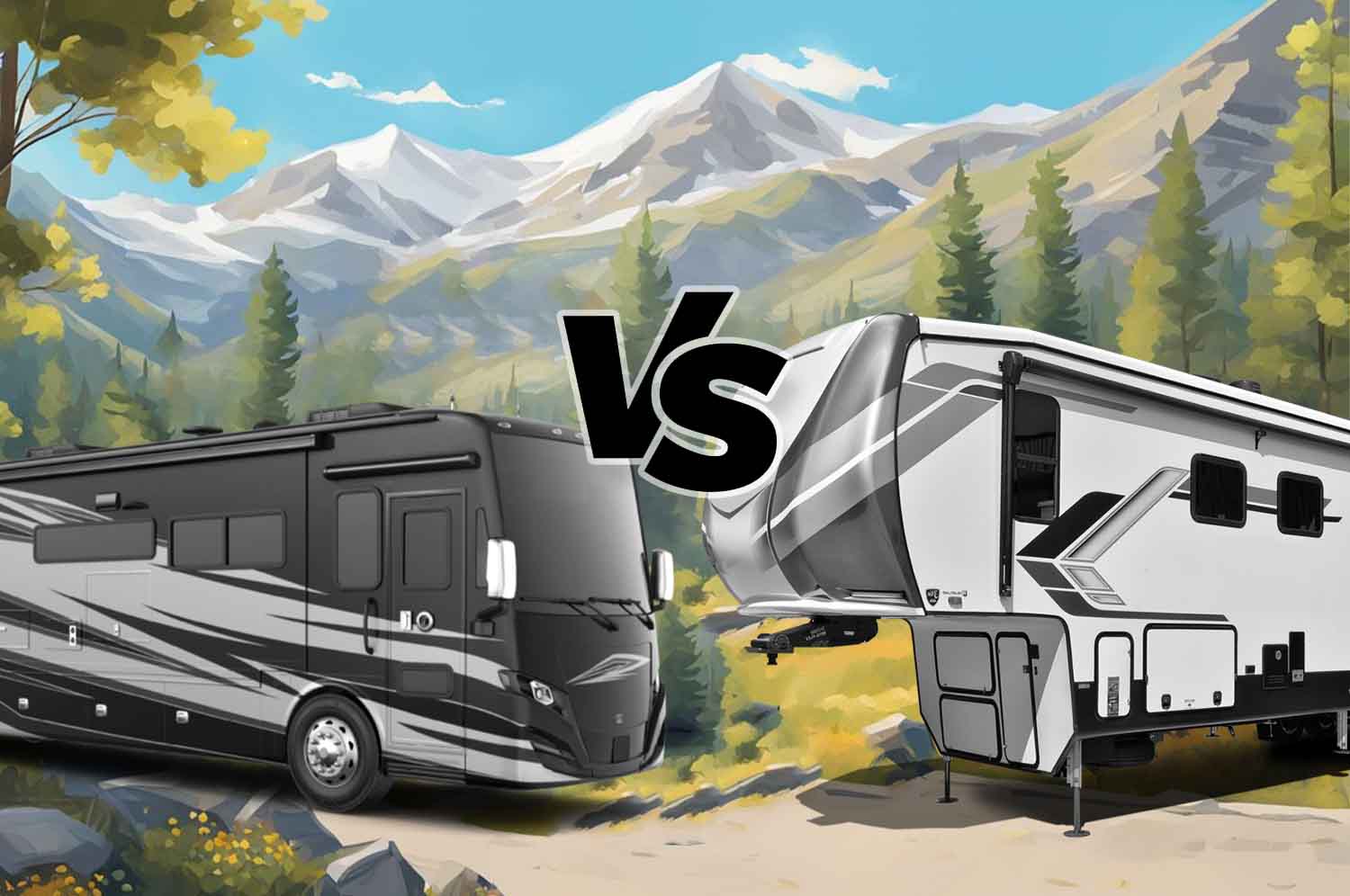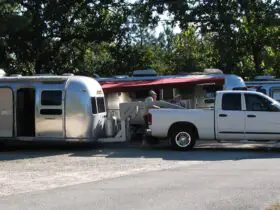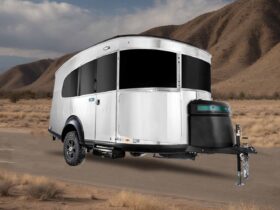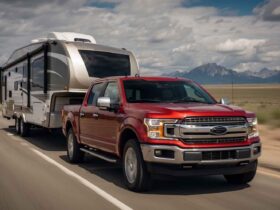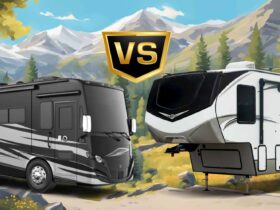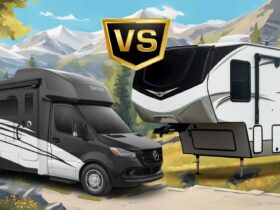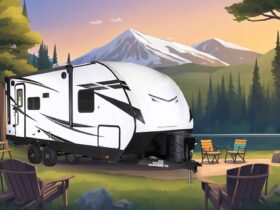Deciding on a mobile living space can be exciting and challenging. One of the most common debates among RV enthusiasts is whether to go for a fifth wheel or a Class A motorhome. Both options have advantages and disadvantages, and choosing the right one for you largely depends on your lifestyle, budget, and travel preferences.
Fifth wheels are known for their spacious interiors and residential feel, while Class A motorhomes offer the luxury of a motorized all-in-one solution. By understanding the basic features, pros and cons of each type, you can evaluate your needs, priorities, and preferences, and ultimately make an informed decision on which home on wheels suits you best.
Key Takeaways
- Both fifth wheel and Class A motorhome offer unique advantages to cater different needs and preferences.
- Consider factors such as lifestyle, usability, and ownership costs when choosing between the two options.
- Be aware of legal and safety considerations, as well as tips for making the right choice when purchasing your mobile home.
Understanding the Basics
What is a Fifth Wheel?
A fifth wheel is a type of towable RV that connects to your truck using a special hitch, called a fifth-wheel hitch, which sits on the bed of your truck. This design offers more stability and easier maneuverability compared to other towable RVs, such as travel trailers. Fifth wheels are popular for their spacious interiors, featuring slide-outs to provide plenty of living space. Some fifth wheel models even have kitchen islands, providing extra counter space and storage.
Fifth wheels are available in various sizes and floor plans, offering amenities such as:
- Separate bedrooms
- Multiple bathrooms
- Entertainment centers
- Outdoor kitchens
They can be built by many RV manufacturers that offer a wide range of floor plans and options to choose from.
What is a Class A Motorhome?
As opposed to fifth wheels, Class A motorhomes are self-propelled vehicles designed to provide luxurious accommodations on wheels. They are built on a specialized chassis, often resembling buses, and are often larger than other types of RVs. One of the distinctive features of Class A motorhomes is their panoramic windshield, offering breathtaking views while traveling.
Some of the common amenities and features in Class A motorhomes include:
- Full kitchens and bathrooms
- Expansive living areas with multiple slide-outs
- Private bedrooms
- High-quality materials and finishes
- Diesel or gasoline engine options
Like fifth wheels, Class A motorhomes are produced by various RV manufacturers, giving you a wide range of choices when selecting the right floor plan and features for your needs.
If you’re new to the world of RVs, understanding the differences between a fifth wheel and a Class A motorhome is crucial for making an informed decision. Familiarizing yourself with RV terms and definitions can also be immensely helpful when navigating discussions and evaluating options in the RV community.
Factors to Consider
Budget Constraints
When comparing a fifth wheel and a Class A motorhome, it’s essential to consider your budget. Class A motorhomes can range from $50,000 to $500,000, while fifth wheels generally have a lower price range. It’s also essential to account for the cost of a tow vehicle for the fifth wheel.
Travel Needs
As you compare fifth wheels and Class A motorhomes, think about your travel preferences and needs. For example, if you value scenic views during your travels, a Class A motorhome’s panoramic windshield might be a better fit. If boondocking or dry camping is more your style, consider that fifth wheels and motorhomes may have different water capacities and generator options, impacting your ability to go off-grid.
Family Size
Your family size can impact the type of RV that’s best for you. Larger families might prefer the spacious layouts available in fifth wheels, while couples or small families may be comfortable in either option. Class A motorhomes can range in size from 21 to 45 feet, while fifth wheels can vary as well.
Amenities Required
Lastly, consider the amenities you desire or require in your home on wheels. Fifth wheels often have more residential-style features, such as kitchen islands. On the other hand, Class A motorhomes might provide advantages like larger windshields and a more seamless driving experience.
Remember to weigh the pros and cons of each option based on your unique preferences, budget, and travel needs, as both types of RVs have distinct advantages.
Pros and Cons
Advantages of Fifth Wheels
Fifth wheels offer a luxurious, spacious interior with high-end amenities. Many models have a kitchen island which provides added functionality. They tend to have more storage capacity, making them ideal for extended trips or full-time living. Fifth wheels are often considered more affordable than Class A motorhomes, allowing more people to enjoy the RV lifestyle. Popular RV brands for fifth wheels include Jayco and Grand Design.
Advantages of Class A Motorhomes
Class A motorhomes offer excellent maneuverability and driving experience, making them easier to drive for some people. The panoramic windshield views are a unique feature that provides a more enjoyable, immersive experience on the road (source). These motorhomes are self-contained, which means you don’t need a separate tow vehicle, saving on additional costs. They also provide a smoother ride, as they’re built on a dedicated chassis. Some well-known Class A motorhome brands include Winnebago and Entegra.
Limitations of Fifth Wheels
One of the main limitations of fifth wheels is the necessity for a compatible tow vehicle. These vehicles can be expensive and might not serve other purposes outside of towing. Moreover, towing a fifth wheel can be challenging, especially for first-time RVers or those inexperienced with towing large trailers.
Another drawback is the lack of availability of some features like leveling systems or built-in generators, which can be found in Class A motorhomes. Lastly, compared to Class A motorhomes, fifth wheels can have limited flexibility in terms of floor plans, as the living space must be placed above the truck bed.
Limitations of Class A Motorhomes
Class A motorhomes can be expensive to purchase and maintain. They are also generally less fuel-efficient compared to fifth wheels, increasing long-term ownership costs. Some people may find them more difficult to drive, especially in tight spaces or on narrow roads.
Class A motorhomes typically require specialized maintenance and repairs, which can be more expensive than those for a typical truck used to tow a fifth wheel. Finally, if a Class A motorhome experiences mechanical issues, you could potentially lose both your transportation and living space until repairs are completed.
Considering all the advantages and limitations, it’s crucial to weigh your priorities and decide which type of RV is best suited for your needs and preferences. Brands such as Coachmen and Rockwood offer a wide variety of options, allowing you to find the perfect home on wheels for your adventures.
Lifestyle and Usability
Full-Time RVing
When it comes to full-time RVing, I believe a fifth wheel can provide a more spacious and comfortable living area. This is largely due to their kitchen island layouts which are more common in fifth wheels than in Class A motorhomes. Additionally, the separation between the living and driving spaces in a fifth wheel creates a more home-like atmosphere.
However, a Class A motorhome can offer a luxurious experience as well. The large panoramic windshield found in Class A motorhomes provides an amazing scenic view that you can enjoy while traveling.
Seasonal Travel
For seasonal travel, a Class A motorhome might be a better option, as it tends to be more maneuverable and convenient for getting in and out of campsites. Class A motorhomes also often come with features like an outdoor kitchen which can be an added bonus during good weather.
A fifth wheel, on the other hand, tends to be more stable and may provide a better camping experience for those who plan to stay in one place for longer periods of time.
Weekend Getaways
If weekend getaways are your main focus, you might find a Class A motorhome to be more convenient. The all-in-one design allows for easy setup and teardown, so you can spend more time exploring your destination. Fifth wheels, although comfortable, usually require more effort to hitch and unhitch to your tow vehicle, which may be a drawback for short trips.
In the end, the suitability of a fifth wheel or a Class A motorhome for your lifestyle and usability preferences depends on your travel plans and personal preferences. Each option has its pros and cons, and considering their characteristics can help you make a well-informed decision.
Ownership and Maintenance
Initial Investment
When considering a home on wheels, the initial investment will be an important factor. Class A motorhomes usually have a higher upfront cost compared to fifth wheels. This is because they combine both the living space and the vehicle chassis, making them pricier. On the other hand, fifth wheels only have a living space, which makes them less expensive. However, you should also factor in the cost of the tow vehicle required for the fifth wheel.
Ongoing Costs
Apart from the initial investment, you should also consider the ongoing costs of ownership. These costs include insurance, fuel, and maintenance expenses. Generally, Class A motorhomes have higher fuel consumption, increasing your monthly expenses. Conversely, fifth wheels may have lower ongoing costs, although Cost of RV Ownership provides a complete expense analysis.
Resale Value
Resale value is another essential factor to consider when choosing your home on wheels. Both Class A motorhomes and fifth wheels depreciate over time, but the rate of depreciation might vary. Typically, motorhomes depreciate faster than fifth wheels due to their attached engine and overall complexity. Fifth wheels can usually maintain their value longer, especially if well-maintained.
DIY Maintenance Tips
Regular maintenance will help you keep your home on wheels in tip-top shape. Here are some tips for both Class A motorhomes and fifth wheels:
- Inspect the exterior: Regularly inspect the roof, windows, and seams for potential water leaks. Reseal any cracks promptly to avoid water damage.
- Service the engine (for Class A): Follow the manufacturer’s recommendations for oil changes and other engine maintenance tasks.
- Check tires and brakes: Make sure the tire pressure is at the recommended level; have brakes inspected periodically.
- Clean and lubricate slide-outs: For fifth wheels, extend and lubricate the slide-outs to ensure smooth operation.
Whether you choose a Class A motorhome or a fifth wheel, the key to enjoying your home on wheels is understanding the ownership and maintenance requirements of each option.
Legal and Safety Considerations
Driving Licenses and Requirements
When choosing between a Fifth Wheel and a Class A Motorhome, it’s essential to consider the necessary driving licenses and requirements. In most cases, a standard driver’s license is sufficient to legally drive a Class A motorhome or tow a Fifth Wheel. However, some states may require a special endorsement or a non-commercial Class B license, particularly for larger Class A motorhomes or when crossing state lines.
It’s crucial to research the specific requirements for your RV type and states you plan to travel through. Additionally, don’t forget about the intricacies of registering your RV in another state or establishing a domicile while embracing the RV lifestyle.
Safety Regulations
Both Fifth Wheel and Class A Motorhomes have safety regulations to adhere to, ensuring a secure living environment. Some of these safety regulations include weight limits, proper hitch connections, and regular maintenance checks. It’s important to familiarize yourself with the specific regulations for your chosen RV type and be diligent in staying up-to-date with any changes.
An essential aspect of RV safety is the proper maintenance and upkeep of your chosen vehicle. Regular inspections ensure that all systems are functioning optimally and reduce the risk of accidents. Moreover, understanding the limitations and capabilities of your RV is critical in going forward with the nomad lifestyle to efficiently address any issues that may arise.
Living in an RV also means considering a different set of challenges regarding your permanent address. Legal matters such as voting, taxes, and vehicle registration are influenced by your domicile, and staying aware of these responsiblities is essential.
To summarize, considering legalities and safety regulations is a crucial aspect when choosing between a Fifth Wheel and a Class A Motorhome. Researching requirements, maintaining your vehicle, and staying informed about your responsibilities as an RVer will contribute to a smooth, enjoyable, and secure experience on the road.
Tips for Making the Right Choice
Personal Preferences
When choosing between a fifth wheel and a Class A motorhome, it’s essential to consider your personal preferences. Think about the features that are most important to you, such as living space, travel convenience, and the overall feel you desire while on the road. Do you want the panoramic views a Class A motorhome windshield provides? Or would you prefer a kitchen island common in many fifth wheels? Keep in mind your preferred style of traveling and the activities you enjoy while on the road.
Opinions from Current Owners
One of the best ways to make an informed decision is to seek out the opinions of current owners of both RV types. Spend some time on RV forums, ask questions, and learn from their experiences. Consider asking the Top 40 Questions when talking to other owners, which will help you understand the pros and cons of each RV type. Listening to their advice can help you determine which RV type best fits your needs and preferences.
Dealership Visits
Visiting RV dealerships can also help you make the right decision. In-person visits provide an opportunity to see and compare different models and floor plans, leading to a better understanding of each RV’s unique characteristics. It’s also an excellent time to discuss your needs with the sales professionals: they can provide guidance on the pros and cons of each type. Be prepared to negotiate and remember, the Best Time of Year to Buy a used RV can make a difference in price. And finally, consider whether you can Get a Better Deal paying in cash or financing your purchase.
By considering your personal preferences, talking to current RV owners, and visiting dealerships, you’ll have a better understanding of the differences between a fifth wheel and a Class A motorhome. This knowledge will help guide you in making the best choice for your home on wheels.



